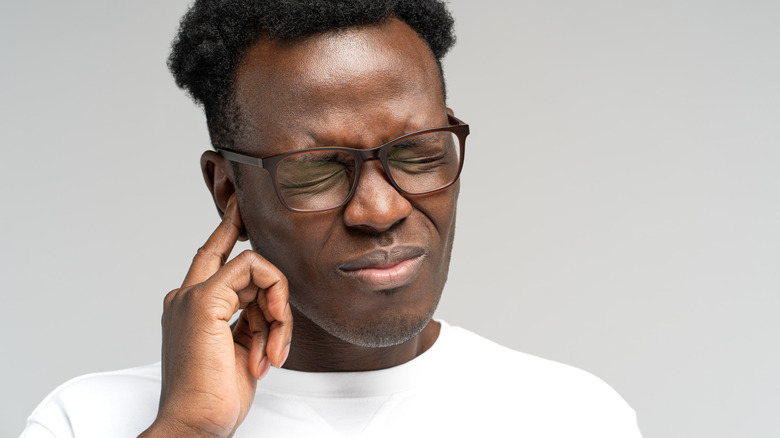Can Vertigo Cause Panic Attacks?
Everyone remembers spinning around in circles as a kid. When you stop, the world seems to keep spinning around you, and it's difficult to find your balance. That's what someone with vertigo experiences, only they didn't precede it by spinning in circles. Although sometimes an episode of vertigo might last for only a few seconds, for some people, it could last for hours or days, according to NHS Inform. Vertigo isn't just about being lightheaded. You could easily lose your balance and feel nauseated.
Depending on the cause of your vertigo, intense vertigo could trigger anxiety, particularly if you're in a public place with a lot of visual stimuli, such as a mall or grocery store, according to the Neuro Visual Center of New York. Because your eyes can't process the excess stimuli, it could be so overwhelming that you have a panic attack. This can easily set you up for a vicious loop where an experience of vertigo causes you to feel anxious, then your anxiety can make you fear going into public places, according to Healthy Hearing.
Is it anxiety or a panic attack?
Although it might be natural to feel confused and uncertain if you have vertigo, feeling anxiety is different from having a panic attack. While the Diagnostic and Statistical Manual of Mental Disorders-5 (DSM-5) doesn't mention the term "anxiety attack," feelings of worry, distress, and fear are often related to psychiatric disorders such as generalized anxiety disorder, social anxiety disorder, or phobias, according to Healthline. Your physical symptoms — such as a rapid heart rate, sweating, or shortness of breath — can be a response to a perceived threat. These symptoms are less severe and less likely to disrupt your everyday activities.
On the other hand, a panic attack can come about suddenly regardless of a trigger such as vertigo (via Medical News Today). Panic attacks can make a person feel disconnected from what's around them to the extent that they can disrupt a person's day. Although panic attacks can last up to 20 minutes, someone could have several panic attacks in a row. This, in turn, can escalate someone's fear of having another panic attack.
Can anxiety cause vertigo?
Vertigo is a physical condition that originates from either the inner ear (peripheral vertigo) or the brain (central vertigo), according to Penn Medicine. Peripheral vertigo can disrupt your sense of balance because the vestibular nerve, vestibular labyrinth, or semicircular canals in the inner ear can become inflamed, injured, irritated, or pressurized. Some antibiotics and diuretics can be toxic to the inner ear and cause vertigo. Central vertigo can be caused by stroke, blood vessel disease, or tumors in the brain stem or back part of the brain. Alcohol, aspirin, and some anticonvulsants can also cause central vertigo.
Stress and anxiety can create vertigo-like symptoms because cortisol and adrenaline can impact the inner ear by disrupting the inner ear's messages to the brain, according to Psych Central. Adrenaline also narrows the blood vessels, which can make you feel dizzy. The hyperventilation associated with panic attacks can also trigger vertigo because the increased oxygen constricts the blood vessels to the brain.



